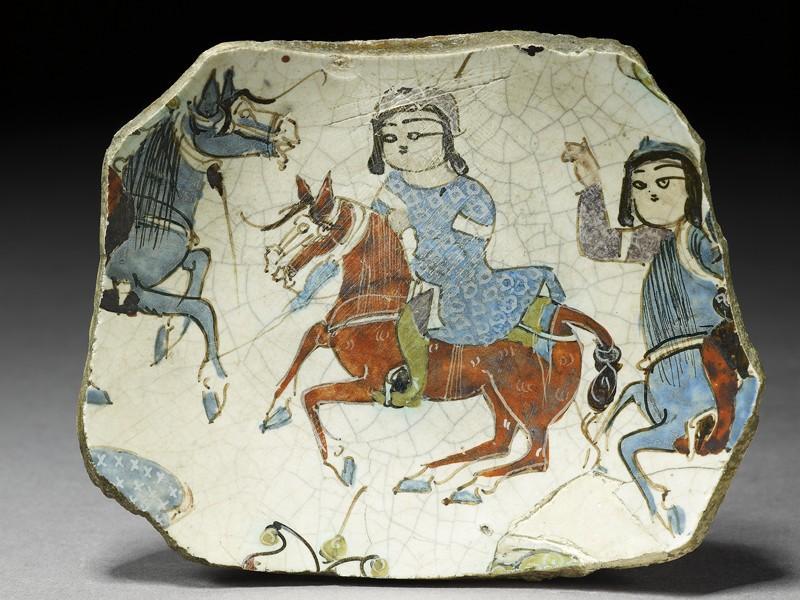Try Amazon Audible Plus

Join Amazon Prime - Watch Thousands of Movies & TV Shows Anytime - Start Free Trial Now
Fragment of a bowl with riders,
northern Iran, probably in Kashan, late 12th to early 13th centuries

A larger detail of this fragment of a seljuk bowl with riders, northern Iran, probably in Kashan, 12th to 13th Centuries.
Book painting, both illumination and illustration, had a marked impact on the decorative ceramic tradition of the Islamic Near East in the twelfth and thirteenth centuries.
The underglaze-painting technique had one serious limitation - colour: it was confined to blue and black.
In northern Iran, probably in Kashan, was developed the technique of overglaze painting, painting onto the cold glaze with enamel colours which were then fixed in a final, low temperature firing.
This enabled the potters to copy and develop the more highly-coloured, artistic ideas already in use among book painters.
Objects decorated in the overglaze technique are normally called Minai-ware, from the Arabic word mina, ‘glaze’.
Source: Ashmolean Museum, University of Oxford.
Other Seljuk Illustrations of Costume & Soldiers

